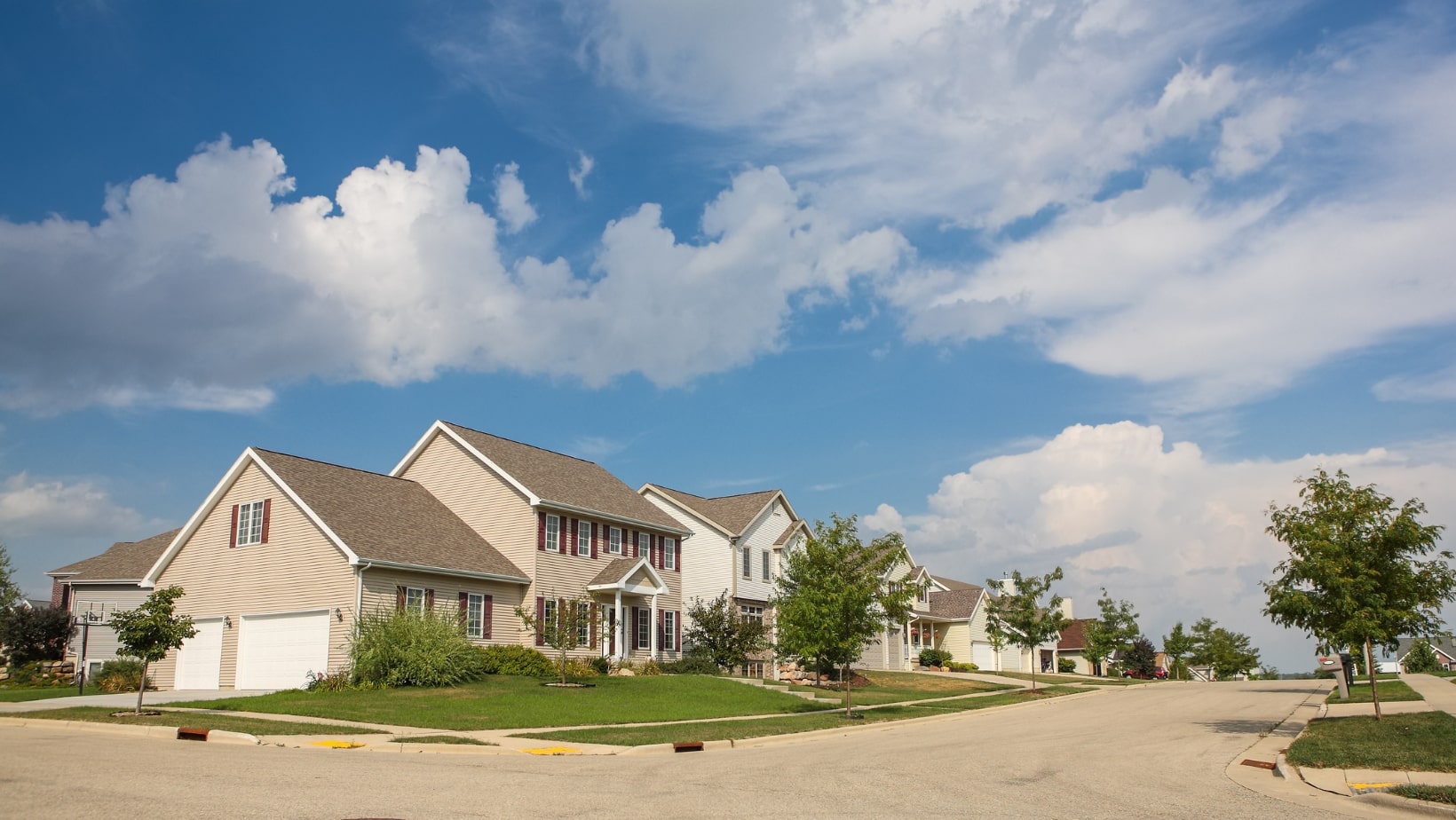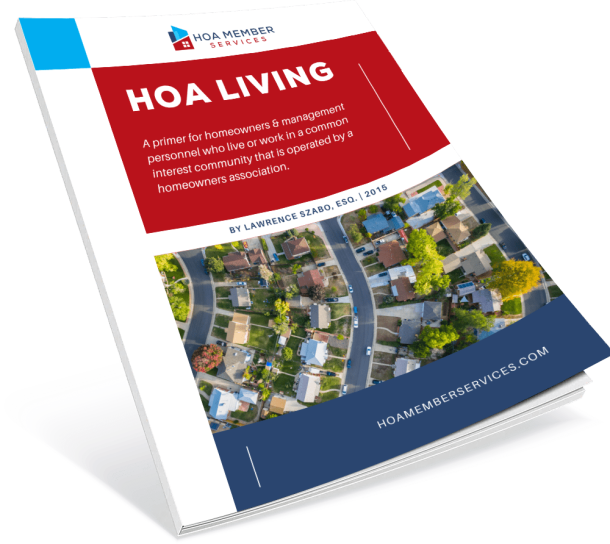What if you open your mailbox one day, expecting the usual stack of bills and flyers, only to find a new HOA statement with a jaw-dropping increase in your dues? No warning, no heads-up, just a higher bill staring you down.
Shocked and confused, you’d wonder if there’s been a mistake. After all, you didn’t receive any notice or explanation about an increase. It’s enough to make any homeowner’s heart skip a beat.
But what are the odds you would actually end up in a situation like this? Can an HOA raise dues without notice? The short answer is no, they can’t. But understanding the rules and regulations of your HOA and knowing your rights are crucial to avoid nasty surprises like this.
That’s why we’re here to tell you everything you need to know about the notice of increase in homeowners association dues. We’re going to break down the legalities, the processes they should follow, and what it means for you if they don’t. So let’s jump right in.

Understanding HOA Dues
When you buy a home in a community governed by a Homeowners Association (HOA), you’re likely going to pay HOA dues. But what exactly are these dues, and why are they important? Let’s explain it all.
What Are HOA Dues?
HOA dues are the fees you pay regularly to your HOA for the upkeep and management of the community. You and your neighbors contribute this money to ensure everything from the grass to the guardrails is in top shape.
Here’s a closer look at what your monthly dues typically cover:
- Maintenance of common areas (parks, pools, landscaping)
- Security services
- Utilities for Shared Spaces
- Community Amenities
- Insurance for common areas
- Community events and activities
- Administrative costs for managing the HOA
Why Are HOA Fees Important?
So, why should you care about HOA fees? Well, these dues are more than just a monthly expense. They’re an investment in your property value and quality of life.
Here’s the scoop on why they’re indispensable:
- Property Value Preservation: A neglected neighborhood often means lower property values. But when homeowners pay their monthly assessments on time, the neighborhood looks good, and property values go up.Well-maintained common areas and facilities make the whole community more attractive to potential buyers, which is great news if you ever decide to sell.
- Community Standards: HOAs set and enforce rules that keep everything looking uniform and tidy. This means no neon pink houses or overgrown lawns disrupting the neighborhood’s aesthetics.
- Financial Planning: Your dues allow the association to plan for future projects and emergencies. It’s all about avoiding those unexpected, large expenses that can be a real headache for everyone.
Typical Structure for Raising HOA Dues
Now you might be thinking, ‘Great, but how often do HOA dues increase?’ I know, the possibility of rising fees might sound scary, but understanding the frequency of fee increases can ease your concern.
The decision to raise HOA dues is usually made in a controlled and predictable way. In most cases, HOA fees increase annually or every couple of years by a small percentage. It’s usually not a huge jump; the average HOA fee increase is typically around 3-5%.
This gradual increment ensures the association can keep up with inflation and rising costs without a hefty impact on homeowners.

Process for HOA Fee Increases
So, how does the HOA decide to raise fees? It’s not as simple as someone just deciding to bump them up one morning. Here’s how it typically goes down:
- Budget Review: The HOA board takes a hard look at the annual budget and forecasts future expenses. They’re thinking ahead, making sure there’s enough money for everything.
- Proposal: If an increase seems necessary, the board drafts a proposal outlining the new fee structure. This isn’t done lightly; they know it affects everyone.
- Notice to Members: Homeowners are often given a heads-up about the proposed changes well in advance. Transparency is key here.
- Meeting and Voting: A community meeting is held where everyone can discuss the proposal. Homeowners can voice their opinions and ask questions, and ultimately, a vote is often required to approve the fee increase.
- Implementation: If the increase gets the green light, it’s implemented in the next billing cycle. Homeowners are notified beforehand so you’ll know exactly when the dues increase and what the new amount will be.
Legal Framework Governing HOA Dues
Now, while the process somewhat answers ‘Can an HOA raise dues without notice?’, grasping the legal principles will give you a clearer picture. It will help you understand your rights and what to expect.
Here are the key points you need to know:
State-Specific Laws and Regulations
Did you know that the rules for homeowners associations can be quite different depending on where you live? It’s true! Every state in the US has its own set of laws and regulations that determine how HOAs operate.
These rules dictate everything from how meetings should be conducted to how and when dues can be increased. In some places, the state laws might require a vote from homeowners or at least a certain period of notice before any increase can happen.
This means that while your friend’s HOA in another state might be able to hike up dues quickly, yours might have to follow a different procedure.
For example, in California, the Davis-Stirling Act requires that HOAs provide a detailed budget and at least a 30-day notice before any increase in regular dues or special assessments.
Meanwhile, in Florida, HOAs must adhere to the Homeowners’ Association Act, which also mandates notice but has different specifics regarding the HOA fee increase limit and procedure.
So, being aware of your state’s laws can empower you to hold your HOA accountable to ensure your rights are respected, and your finances are protected.

Governing Documents
Every HOA is obliged by a set of governing documents known as Covenants, Conditions, and Restrictions (CC&Rs), along with bylaws. These documents are like the constitution of your community, outlining the powers and limitations of the HOA.
The CC&Rs and bylaws spell out everything, including the specific rules about how the HOA can raise dues and assessments. They will usually outline the exact steps HOA boards need to take, such as giving notice and getting approval before any changes can be made.
Here’s the lowdown:
- CC&Rs are binding legal obligations that homeowners agree to when purchasing property within the community. They cover everything from architectural standards to financial responsibilities.If the CC&Rs state that dues can be raised only after a majority vote of the homeowners, then that’s the rule the HOA must follow.Additionally, they may include limits on how much dues can be increased within a certain period. The HOA fee increase limits are designed to protect homeowners from sudden and significant financial burden.
- Bylaws, on the other hand, are like the operational manual for the HOA. They detail the internal workings of the board, including how budget meetings are conducted and how decisions are made.
Being familiar with these documents is key to understanding what your HOA can and cannot do regarding fee increases. If your HOA tries to sneak in a dues increase without following the proper procedures, they may be acting illegally.
What Are the Notice Requirements for Raising HOA Dues?
When we talk about ‘notice,’ we’re referring to the official communication from the Homeowners Association (HOA) board to everyone in the community about any upcoming changes in the dues. But why is this so important?
Imagine getting a surprise bill that’s higher than usual. Annoying, right? That’s why giving advance notice is crucial to allow homeowners to plan and budget properly.
Plus, it ensures transparency, so you understand why the change is happening and what your money is being used for. But can an HOA raise dues without notice? Absolutely not. There are strict rules in place to prevent this, and HOAs must follow them to ensure fairness and legality.
Here are some key things you should know:
Standard Procedures
HOAs have to follow certain steps to provide proper notice before implementing fee increases. This often involves an official announcement from the HOA board to notify homeowners about any changes in dues.
The HOA board members have the fiduciary duty of managing the community’s finances, and they have to make sure everyone is informed well in advance. Standard procedures often dictate that the HOA boards must convene, discuss, and vote on any proposed changes to the dues.
Homeowners also get a chance to be part of the decision-making process. Here’s how it usually works: the board schedules a meeting to discuss the proposed changes. These meetings are open to homeowners, where you can voice your opinions and ask questions.

Common Notice Periods
Now, you might be wondering how much notice period is enough. It can vary from state to state, but typically, HOAs are required to give you a time frame of 30 to 60 days before the new dues take effect.
This period is crucial because it gives you enough time to adjust your finances and prepare for the new amount. Imagine having only a week’s notice — that would be chaotic! That’s why these notice periods are in place to protect you from that kind of stress.
So, if you see a dues increase coming your way, it shouldn’t be a shock if your HOA is following the rules.
Methods of Delivering Notice
Now, how do they get the word out? Homeowners associations employ various methods to ensure all HOA members are adequately informed. Traditional mail remains a popular choice for its formal and tangible nature.
There’s something about receiving a formal letter that makes the information feel official and important. However, in today’s digital age, email notifications are becoming more common. They’re quick, efficient, and often more convenient for everyone involved.
Another efefctive method is community meetings. These gatherings provide a direct way for the board members to explain the homeowners the reasons behind the increase.
It’s a chance for you to get all the facts straight from the source, ensuring there’s no confusion or misunderstanding.
Situations Where HOAs Might Raise Dues Without Notice
So, the answer to ‘Can an HOA raise dues without notice?’ is pretty evident now — by rule, they can’t. However, there can be some rare scenarios where they might not comply and increase monthly assessments without notice.
Emergency Situations
Imagine a sudden, catastrophic event like a severe storm that damages shared community properties. The drains are filled with debris, roofs have caved in, and trees are down everywhere.
In such emergencies, the HOAs suddenly face a financial crisis and may need to act quickly to fund immediate repairs. This urgency could lead to a hasty increase in dues to cover the unexpected cost of the repairs and ensure the safety and usability of these shared spaces.
So, while it’s far from ideal, in some unusual instances, the HOAs might find themselves with no choice but to raise fees without prior notice.
Financial Mismanagement
Now, let’s talk about something a bit less dramatic but equally impactful — oversight in financial reporting. Sometimes, an HOA might find itself in hot water due to poor financial planning.
Perhaps previous boards didn’t budget correctly, or they failed to save enough for long-term maintenance projects. Suddenly, the community faces a significant shortfall, and the current board is left scrambling to make up the difference.
Without sufficient reserves, they might see an immediate HOA fees increase as the only viable option to avoid bankruptcy. This scenario, while frustrating, highlights the importance of having competent financial oversight within your HOA.
Lack of Clear Bylaws
Lastly, consider the complexities of outdated or ambiguous governing documents. Believe it or not, some HOAs operate with obsolete documents.
Maybe your HOA’s bylaws haven’t been updated in decades, and the language is vague or contradictory. If it lacks clarity on notice requirements, an HOA might exploit these loopholes.
They might interpret these ambiguities in a way that justifies increasing dues without the usual notice. This lack of clarity can lead to unexpected fee hikes for homeowners.
What Happens When an HOA Raises Dues Without Notice?
Even though there are scenarios where an HOA might feel compelled to raise association dues without notice, it doesn’t mean they are off the hook. Here are some consequences they might face:
- Legal Action by HomeownersHomeowners may take legal action against the HOA, demanding a rollback of the dues increase and compensation for any inconvenience caused.
- State InterventionsIn some states, government agencies can step in to enforce compliance with notice requirements and penalize the HOA for its failure to follow proper procedures.
- Reputation DamageSuch actions can severely damage the HOA’s reputation, leading to distrust among residents and difficulties in future community governance.

What Can Homeowners Do If HOA Fees Increase Without Notice?
Now, while HOAs generally can’t raise fees without proper notice, knowing what to do in case they overstep their boundaries is still important.
Here’s how to fight unnotified HOA fee increases:
1. Review Governing Documents
The first step is to grab a copy of your HOA’s governing documents. These include the bylaws, Covenants, Conditions, and Restrictions (CC&Rs), and any applicable state laws. Think of these as the rulebook for your HOA.
They lay down your rights and the HOA’s obligations, telling you exactly what they can and can’t do. Many homeowners gloss over these documents when they move in, but they are a goldmine of information when disputes arise.
For instance, before reading this post, did you know that your CC&Rs likely include specific provisions about how and when fees can be increased?
By familiarizing yourself with these rules, you’ll be better equipped to challenge any unwarranted changes. It might seem like a chore, but trust me, it’s worth it.
2. Seek Mediation
If you’re not getting anywhere with a simple review of the documents, mediation might be your next best step. This includes bringing in a neutral third party to help you and the HOA board communicate more effectively.
Mediation can help clear the air and find a solution that works for everyone. It’s like having a skilled referee who ensures that both sides play fair. This process can often resolve conflicts without the stress and expense of a legal battle.
Mediators are trained to facilitate negotiations, ensuring both parties’ voices are heard. Plus, it can open up lines of communication that you didn’t even know existed.
You might find that the HOA board wasn’t intentionally trying to be sneaky — maybe there was just a breakdown in communication.
3. Take Legal Action
If all else fails, it might be time to consider legal action. This step shouldn’t be taken lightly, but sometimes it’s the only way to protect your rights. However, seeking legal advice is crucial here.
A lawyer can help you understand the complexities of HOA regulations and state laws, ensuring your case is strong. They can guide you through the process of filing a lawsuit or seeking an injunction to prevent the fee increase from taking effect.
Remember, taking a stand for your rights can also set a precedent for your neighbors, safeguarding the community from future overreach. It might be a daunting step, but it can be necessary to ensure fairness.

Final Verdict
So, wrapping it all up, can an HOA really raise your dues without giving you a heads-up? No, while most HOAs do have the authority to raise fees, there are often legal obligations to provide a notice that they must follow.
You deserve to know about any changes well in advance, allowing you time to plan and respond accordingly. Remember, you have a voice and a right to be informed about decisions affecting your home and finances.
Here are a few quick tips to foster a harmonious and transparent community:
- Maintain a healthy relationship with your HOA.
- Stay proactive by attending meetings and keeping informed.
- Advocate for transparency in all community decisions.
If you ever find yourself in a bind or just want to be prepared, it’s smart to have legal backup. Don’t hesitate to reach out to us for specialized legal assistance in HOA disputes. Check out our membership plans for access to professional legal support from an experienced HOA attorney.
Don’t wait until it’s too late — join us today and take control of your home’s future. Let’s ensure your rights are protected every step of the way.


